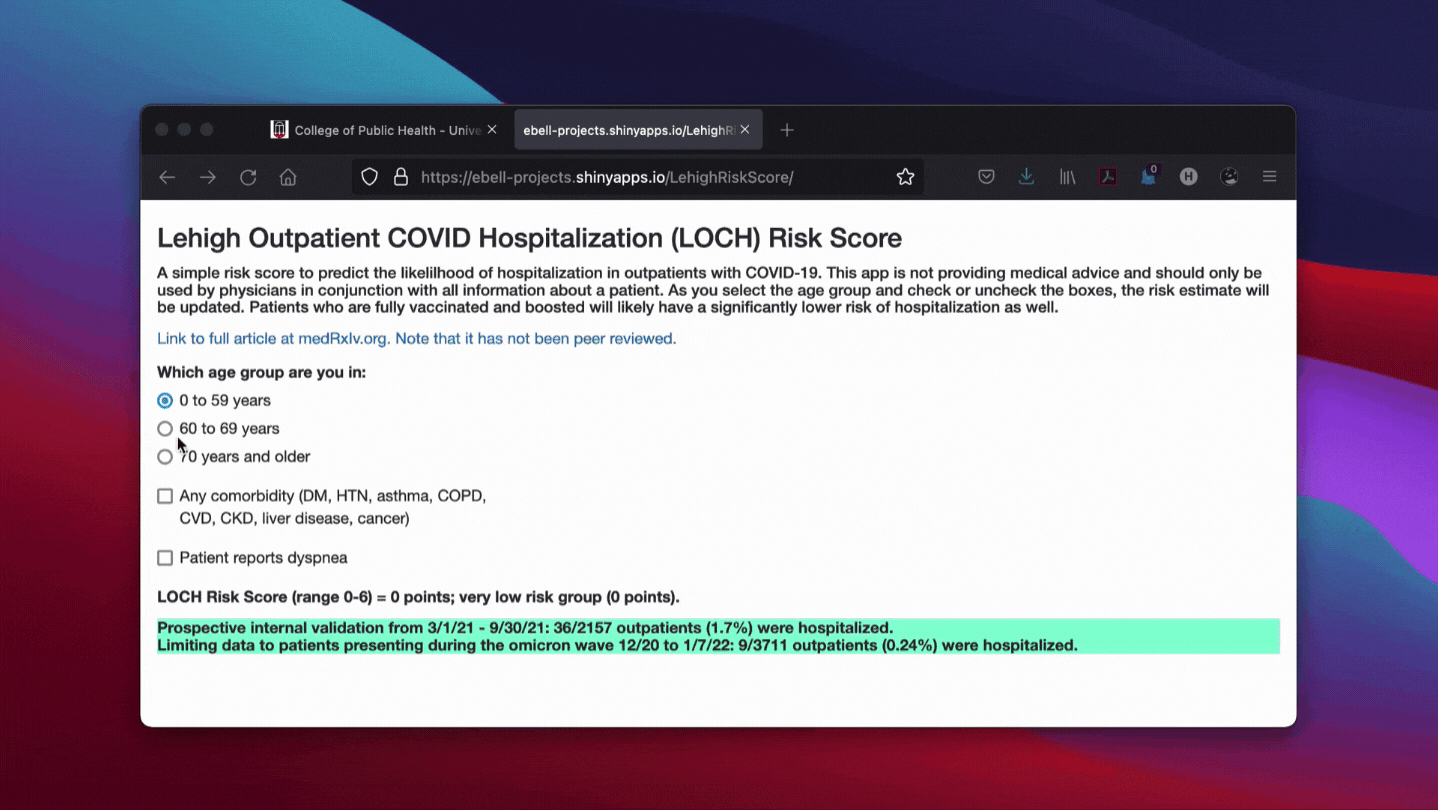A simple risk score is available to all clinicians in a free app
Clinicians now have access to a simple tool to help them predict which COVID-19 patients will need hospitalization.
A team of researchers, led by University of Georgia professor Mark Ebell, developed and tested a simple risk score using data from nearly 10,000 COVID-19 outpatients to help determine whether a person presenting with COVID symptoms is at high risk for hospitalization or death.
The tool arrives at a time when hospitals and clinics are once again battling a surge of COVID patients, driven by the new omicron variant, with too few beds and staff to help them. Making a decision about who needs intensive care is increasingly becoming a matter of life and death.
This risk score is a gut-check for clinicians, says Ebell, a physician and epidemiologist in UGA’s College of Public Health.
“So, if I’m thinking ‘this person looks pretty good to me, I think they’re low risk,’ but I check the risk score and, ‘oh, they’re moderate or high risk, maybe I should rethink this. What am I missing here?’ It’s a way of double checking your decision-making,” he said.
Ebell and collaborators first used statistical methods to identify the top three independent predictors of hospitalization in people initially treated in an outpatient setting. These were age, the presence of comorbidities – diabetes, high blood pressure, asthma, chronic lung disease, liver disease, kidney disease, and cancer – and shortness of breath.
They developed their simple risk score using data from just over 5,800 patients who visited primary care or express care clinics part of a Pennsylvania health care system before March 1, 2021, and then tested it prospectively in over 3,800 patients who visited the clinics after March 1st.
They most recently tested the risk score in a group of over 6,000 outpatients presenting during the omicron wave between December 20, 2021 and January 21, 2022.
“It performed very well. More than half of patients could be classified as low risk, and during omicron that meant only a 1 in 450 chance of being hospitalized,” said Ebell.
The resulting Lehigh Outpatient COVID Hospitalization (LOCH) risk score is available online as a free app: https://ebell-projects.shinyapps.io/LehighRiskScore/.
A key benefit of this risk score is that it doesn’t require lab work, says Ebell, making it accessible to all outpatient settings and telehealth providers.
The paper detailing the development of the risk score was published on a preprint server and is currently undergoing peer review.
– Lauren Baggett
Posted on February 08, 2021.







